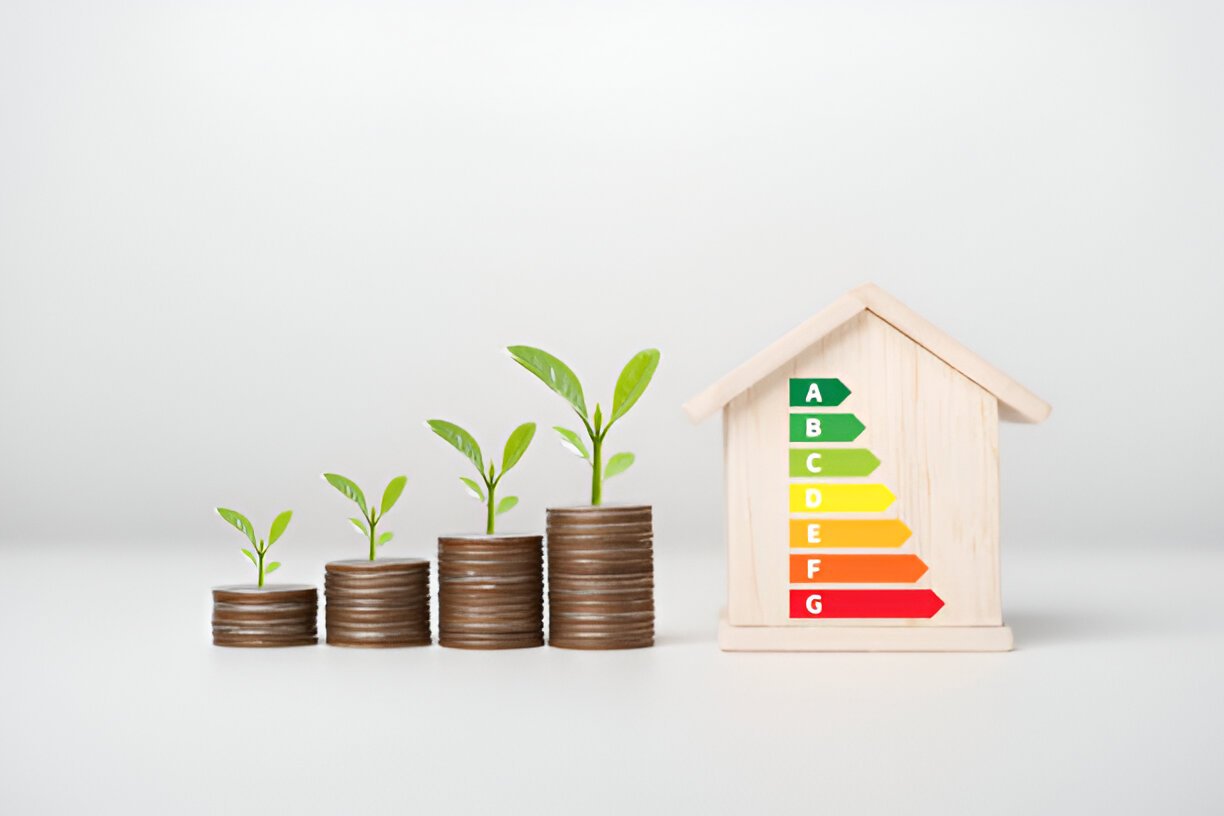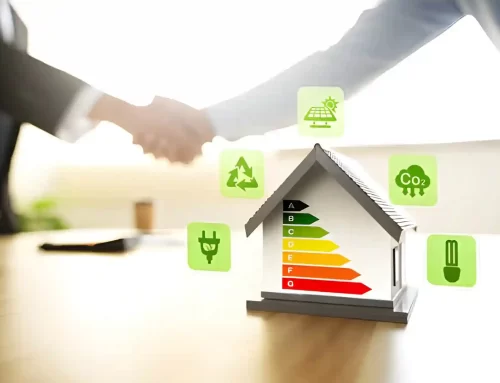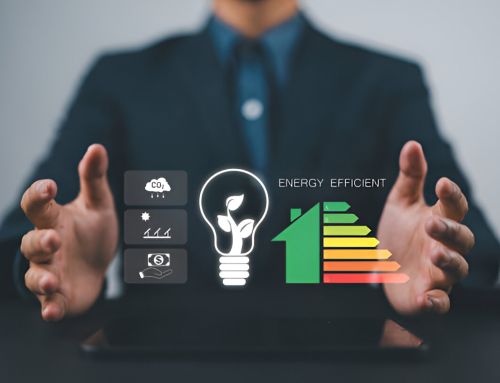
Have you ever wondered about the process of obtaining an EPC certificate and the necessary steps involved?
The journey towards securing this essential document for your property entails various considerations that are vital to grasp. From understanding the significance of an EPC to navigating the intricacies of finding qualified assessors, there’s a multitude of factors to explore.

Let’s unravel the key aspects of obtaining an EPC certificate together, shedding light on the essential information you need to make informed decisions regarding your property’s energy efficiency and compliance with regulations.
Understanding Energy Performance Certificates
Understanding Energy Performance Certificates involves delving into the assessment of property energy efficiency and its environmental impact. EPC benefits are multifaceted, offering insights into a property’s energy performance, cost-saving recommendations, and environmental footprint.
The validity of an EPC is crucial, lasting for 10 years and providing a snapshot of a property’s energy efficiency. Making eco-conscious decisions based on an EPC can lead to significant energy savings. Embracing renewable options, such as solar panels or air source heat pumps (ASHP), can improve an EPC rating and reduce reliance on fossil fuels.
Energy-saving tips outlined in an EPC may include upgrading insulation, installing energy-efficient appliances, and improving heating systems. By understanding and acting upon the recommendations in an EPC, individuals can enhance energy efficiency, reduce carbon emissions, and make informed decisions to create a more sustainable living environment.
Steps to Obtain an EPC
To obtain an Energy Performance Certificate (EPC), the initial step involves scheduling an assessment with a qualified Domestic Energy Assessor. The EPC assessment process entails a detailed examination of various property aspects affecting energy efficiency, such as insulation, heating systems, and overall construction. It’s crucial to ensure that the assessor holds the necessary qualifications and accreditations to conduct the assessment accurately.
When considering EPC pricing options, it’s advisable to compare quotes from different companies, as pricing may vary based on factors like property size and location. The EPC energy efficiency rating scale ranges from A to G, with recommendations provided for improving efficiency. Additionally, it’s important to note that an EPC is valid for a period of 10 years, highlighting the long-term benefits of enhancing a property’s energy performance.
EPC Cost Factors
When considering EPC cost factors, it’s essential to compare quotes from different companies to ensure competitive pricing based on property specifics. Cost considerations for an EPC can vary depending on factors such as property type, location, number of bedrooms, and overall condition.

Direct assessments may offer more competitive pricing options compared to indirect methods. It’s crucial to seek accurate assessments that take into account the unique characteristics of your property to provide a reliable energy performance certificate.
Analyzing Your EPC Content
For a comprehensive assessment of your property’s energy efficiency, delve into the content of your Energy Performance Certificate (EPC). The EPC assessment process outlined in the certificate provides valuable insights into your property’s energy performance. Utilizing an accredited assessor benefits you by ensuring the accuracy and reliability of the assessment, as well as identifying potential energy efficiency improvements.
It’s essential to understand the EPC validity period, which is typically 10 years, and consider renewable energy options like solar panels or air source heat pumps to enhance your property’s energy efficiency rating. By analyzing your EPC content thoroughly, you can pinpoint areas for improvement, such as upgrading insulation or improving heating systems, to not only save on energy bills but also reduce your environmental impact.
Take advantage of the detailed recommendations in your EPC to make informed decisions that enhance both your property’s energy efficiency and overall sustainability.
Legal Requirements and Exemptions
Discussing the legal requirements and exemptions surrounding Energy Performance Certificates (EPCs) sheds light on crucial obligations and exceptions within the regulatory framework. Legal obligations mandate that properties marketed for sale or rent must have a valid EPC.
Exemptions clarification includes specific buildings like places of worship or listed buildings in Scotland. Impact assessment of EPCs plays a vital role in understanding a property’s energy efficiency and environmental impact.
Exemption criteria outline the conditions under which a property may be exempt from the EPC requirement. Alternative compliance methods may be available for properties that can’t meet the standard EPC criteria. Understanding these aspects is essential for property owners and landlords to ensure compliance with the law while also exploring options for energy efficiency improvements.
Improving Your EPC Rating
To enhance your EPC rating, consider implementing energy-saving measures such as upgrading insulation and installing energy-efficient appliances. These energy-saving strategies not only boost efficiency but also contribute to sustainability improvements.
Renewable options like solar panels or air source heat pumps can further enhance your rating by reducing your carbon footprint. Efficiency enhancements such as double glazing and programmable thermostats also play a crucial role in improving your EPC score.
By focusing on carbon reduction strategies, like evaluating biomass boilers or reducing reliance on fossil fuels, you can significantly impact your property’s environmental impact rating. Keep in mind that every small change adds up to a better EPC rating.
Prioritize energy-saving measures, explore renewable options, and invest in sustainability improvements to elevate your property’s overall energy efficiency and environmental sustainability.
Frequently Asked Questions
Can I Obtain an EPC Certificate for a Property That Is Not Being Sold or Rented?
Yes, I can enhance energy saving, home improvements, and sustainability by obtaining an EPC certificate for my property. Understanding energy consumption and environmental impact is crucial for property maintenance, building regulations compliance, and ensuring optimal property valuation.
Are There Any Financial Incentives or Government Schemes Available for Improving Energy Efficiency Based on EPC Recommendations?
Financial benefits and government incentives exist for energy efficiency improvements based on EPC recommendations. These incentives encourage property enhancements, leading to energy savings and reduced carbon footprint. Consider exploring available schemes to maximize benefits.
How Often Should I Consider Getting a New EPC Assessment for My Property?
When considering property maintenance, I prioritize energy savings and sustainability benefits. Monitoring energy efficiency through regular EPC assessments ensures environmental impact reduction and guides home improvements for optimal performance and eco-friendly living.
Is It Possible to Challenge the Findings or Rating on an EPC Certificate if I Believe It Is Inaccurate?
Yes, it is possible to challenge the accuracy of an EPC rating. Legal implications exist if inaccuracies affect property transactions. A dispute process involves professional assessment and data verification. Seek resolution through qualified assessors.
Are There Any Specific Guidelines or Regulations for Displaying the EPC Rating in Property Advertisements or Listings?
I ensure property listings comply with legal requirements by displaying EPC ratings prominently. My marketing strategies prioritize consumer awareness of energy conservation. Adherence to industry standards showcases property efficiency, enhancing sustainability and attracting eco-conscious buyers.
Conclusion
In conclusion, obtaining an Energy Performance Certificate (EPC) is a crucial step in understanding your property’s energy efficiency and complying with legal requirements.
By following the necessary steps, analyzing the content of your EPC, and considering ways to improve your rating, you can make informed decisions to enhance your property’s environmental impact.
With the right information and guidance, navigating the world of EPCs can be a manageable and beneficial process for property owners.
About the Author: LandlordCertificate
Related Posts
Get Social
Recent Posts
- Asbestos Management Survey London: Update Your Property Records
- Gas Safety Certificate London: Why Regular Checks Save Money Long-Term
- FRA London Explained: How a Professional Fire Risk Assessment Keeps You Compliant and Safe
- When a New Tenancy Requires Your EICR Certificate London Renewal
- Fire Safety Certificate London: Integrating Fire Alarms and Emergency Lighting













